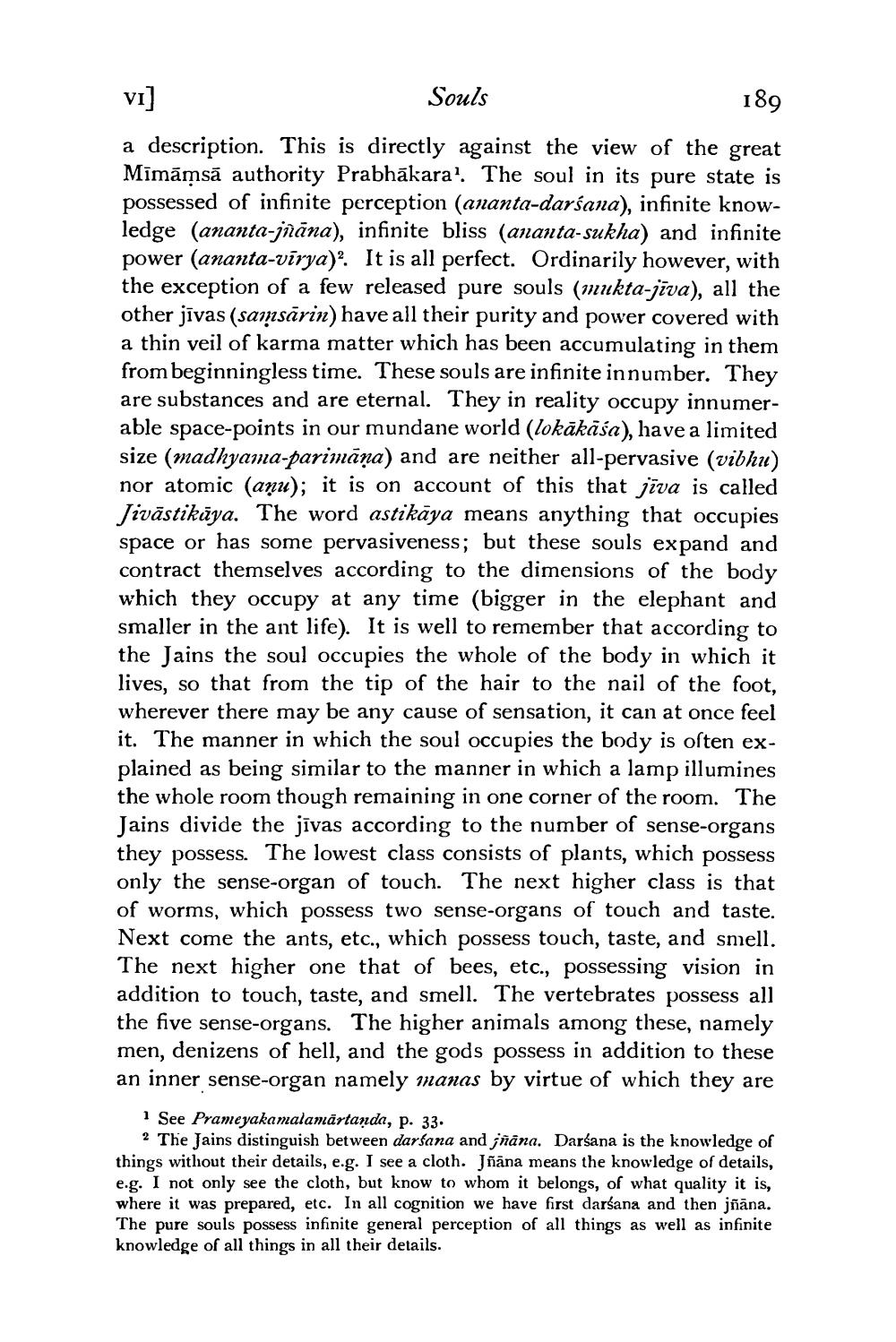________________
VI
Souls
189 a description. This is directly against the view of the great Mīmāmsā authority Prabhākara? The soul in its pure state is possessed of infinite perception (ananta-darśana), infinite knowledge (ananta-jñāna), infinite bliss (ananta-sukha) and infinite power (ananta-vīrya)? It is all perfect. Ordinarily however, with the exception of a few released pure souls (mukta-jīva), all the other jīvas (sainsărin) have all their purity and power covered with a thin veil of karma matter which has been accumulating in them from beginningless time. These souls are infinite in number. They are substances and are eternal. They in reality occupy innumerable space-points in our mundane world (lokākāśa), have a limited size (madhyama-parimāņa) and are neither all-pervasive (vibhu) nor atomic (anu); it is on account of this that siva is called Jivāstikāya. The word astikāya means anything that occupies space or has some pervasiveness; but these souls expand and contract themselves according to the dimensions of the body which they occupy at any time (bigger in the elephant and smaller in the ant life). It is well to remember that according to the Jains the soul occupies the whole of the body in which it lives, so that from the tip of the hair to the nail of the foot, wherever there may be any cause of sensation, it can at once feel it. The manner in which the soul occupies the body is often explained as being similar to the manner in which a lamp illumines the whole room though remaining in one corner of the room. The Jains divide the jīvas according to the number of sense-organs they possess. The lowest class consists of plants, which possess only the sense-organ of touch. The next higher class is that of worms, which possess two sense-organs of touch and taste. Next come the ants, etc., which possess touch, taste, and smell. The next higher one that of bees, etc., possessing vision in addition to touch, taste, and smell. The vertebrates possess all the five sense-organs. The higher animals among these, namely men, denizens of hell, and the gods possess in addition to these an inner sense-organ namely manas by virtue of which they are
See Prameyakamalamārtanda, p. 33. 2 The Jains distinguish between darfana and jñāna. Darśana is the knowledge of things without their details, e.g. I see a cloth. Jñāna means the knowledge of details, e.g. I not only see the cloth, but know to whom it belongs, of what quality it is, where it was prepared, etc. In all cognition we have first darśana and then jñāna. The pure souls possess infinite general perception of all things as well as infinite knowledge of all things in all their details.




